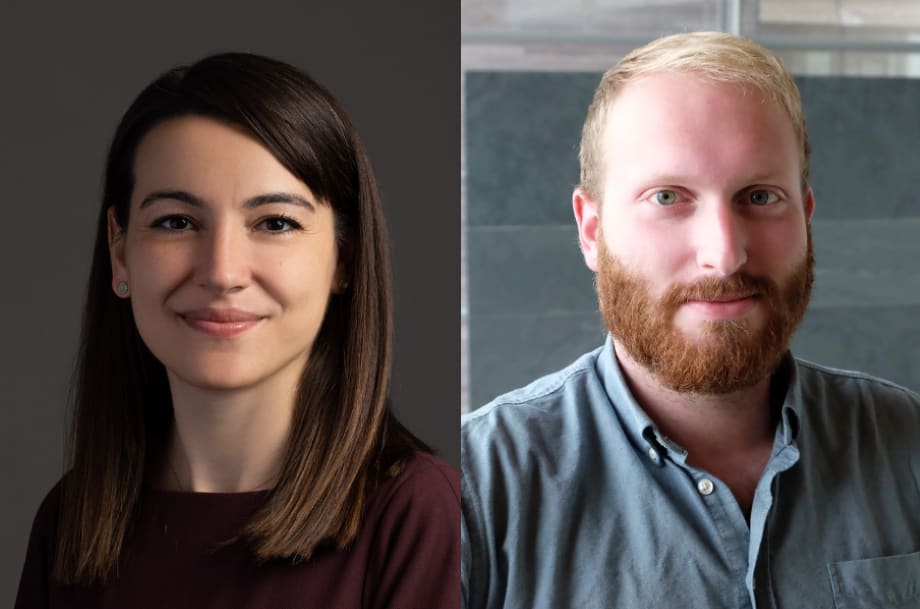The Yale School of Medicine Department of Genetics is proud to announce that two of its faculty members, Dr. Berna Sozen and Dr. Steven Reilly, have been named 2025 Pew Biomedical Scholars. This prestigious honor recognizes young investigators of exceptional promise in biomedical science.
This annual award, administered by The Pew Charitable Trusts, provides 4-year grants to early-career scientists whose innovative research is poised to advance human health. Pew Biomedical Scholars are selected not only for their scientific achievements but also for their creative and risk-taking approaches to solving some of the most pressing questions in human biology and disease.
Dr. Berna Sozen joined Yale as an Assistant Professor in 2020, where she established her lab that focuses on multimodal regulation of development, exploring how different regulatory mechanisms—genetic, cellular, metabolic, signaling, and environmental factors—integrate to control complex biological processes. Her lab investigates the multimodal regulation of cell fate, tissue development, and metabolic responses in early mammalian embryonic development and focuses on mouse and human embryos. Her recent study published in Nature (2024) reveals that spatially and temporally compartmentalized glucose metabolism plays an instructive role in mammalian gastrulation, guiding cell fate and tissue morphogenesis. Dr. Sozen’s current research includes modelling mammalian development in 3D, studying developmental programming to understand when and how regulative cellular and molecular mechanisms compromise embryo health and contribute to adverse pregnancy outcomes, and exploring the connection between metabolism and transcriptional regulation during embryonic patterning.
Dr. Steven K. Reilly joined the Department of Genetics as an Assistant Professor in 2021. Dr. Reilly’s research bridges evolutionary biology, functional genomics, and computational modeling to better understand how non-coding regions of the genome influence human disease and diversity. At Yale, the Reilly Lab develops high-throughput methods, including non-coding CRISPR screens and massively parallel reporter assays, to experimentally test gene cis-regulatory elements (CREs) at scale. His lab’s recent publications include a Nature (2024) paper demonstrating the use of machine learning to design synthetic, cell type-specific cis-regulatory elements and a Science (2023) paper that identifies human-specific deletions of sequences that have been otherwise conserved across evolution and may play an important role in uniquely human traits. Dr. Reilly’s current research focuses on developing tools to interpret regulatory variation, investigating signals of positive selection in humans, deciphering the regulatory grammar of the genome, and characterizing species-specific genetic variation.
We congratulate Dr. Sozen and Dr. Reilly on this outstanding recognition and look forward to the continued impact of their innovative research in shaping the future of biomedical science.

